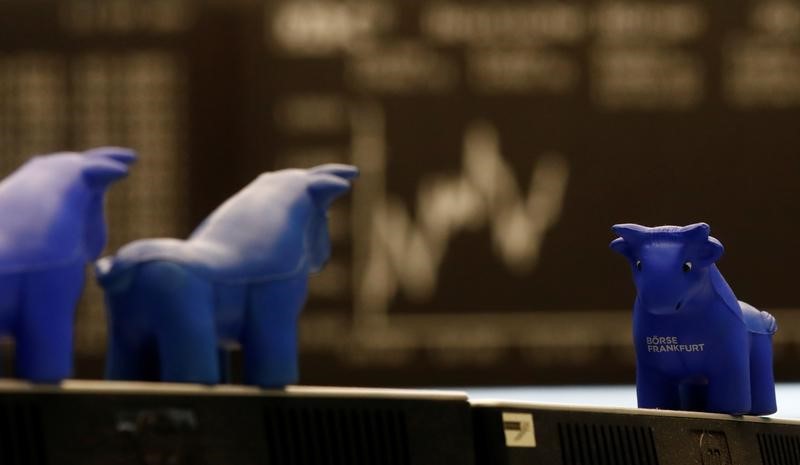Predicts that European stock markets will open in a mixed way on Tuesday. Investors are likely to be cautious before the release of U.S. inflation data, which will be a key indicator of the Federal Reserve’s plans for interest rates.
At 02:00 ET (06:00 GMT), the DAX futures contract in Germany was down 0.3%, the CAC 40 futures contract in France was up 0.1%, and the FTSE 100 futures contract in the U.K. was down 0.2%. rose 0.1%.
Tuesday, the U.K. and the U.S. economy is likely to set the tone. The number of people claiming unemployment benefits went up by 6,300 in August, which was a bad sign. However, the unemployment rate went down from 3.8% to 3.6%, which shows that the country’s job market stayed healthy despite the negative effects of rising prices.
Related: European stocks go up, but GDP growth in the UK is disappointing.
In August, German consumer prices went up by 0.3%, which was less than the 0.9% increase the month before. However, the annual figure still went up from 7.5% to 7.9%.
The ZEW Economic Sentiment Survey, which will come out later in the session, is likely to show that Germans are not happy with their economy. But they are likely to be overshadowed by the U.S. data, which will be released at 8:30 ET (12:30 GMT). The Fed’s policy meeting next week will be based on CPI numbers, which will set the tone for the next few weeks.
People expect the headline CPI to go down because energy and commodity prices are coming down from their highs. However, core prices are expected to stay high.
The markets currently think that the Federal Reserve will raise its benchmark interest rate by 75 basis points at its policy meeting next week.
UBS (SIX:UBSG) will be in the news on Tuesday because the Swiss banking group said it plans to raise its dividend and expects to buy back more than $5 billion worth of shares in 2022.
Oil prices went down a little bit on Tuesday before the release of both the U.S. inflation data, which is likely to affect the dollar, and OPEC’s monthly outlook report.
Last week, the Organization of Petroleum Exporting Countries and its allies agreed to cut crude oil production. Traders will look to the report, which will be released later in the session, for more information about global demand.
Last week, crude hit its lowest level since January because of worries about global growth, especially in China, which is the biggest importer and where new COVID-19 restrictions are slowing down business.
Related: When European stocks open, banks give them a boost.
By 02:00 ET, U.S. crude futures were down 0.1% to $87.66 per barrel, while the Brent contract was down 0.2% to $93.79.
Also, gold futures went down 0.5% to $1,732.05/oz, and EUR/USD went up 0.2% to 1.0138.

